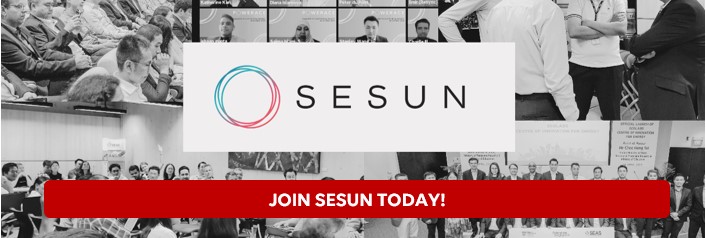- Details
- Category: Uncategorised
- Hits: 9500
About-Us/Our-Committees/SESUN-Working-Group

SEAS Sustainable Energy Start-Up Network (SESUN) was established in 2018 which saw the sustainable energy industry and many new start-up companies coming together to brainstorm and share their feedback on the various challenges they face as start-up companies. This new group provides the members an opportunity to seek market exposure, strategic partnerships and investments.
Sustainable energy requires constant innovation to drive down costs, improve efficiency and reduce impact of energy sector on climate change. Start-ups can have an important role to play by advancing clean, decentralized and digital solutions for the sector.
SEAS Sustainable Energy Start-Up Network (SESUN) committee is chaired by Melvyn Yeo
 |
 |
- Details
- Category: Uncategorised
- Hits: 12050
About-Us/Our-Committees/Marine-Renewable-Energy-Working-Group

The Sustainable Energy Association of Singapore set up the Marine Renewable Energy Working Group together in April 2018. Marine renewable energy refers to anything in the marine space used to generate renewable energy such as floating solar panels and ocean renewable energy technologies (e.g. tidal range, currents, wave, thermal gradient, salinity gradient).
The Marine Renewable Energy is a sunrise industry, which has more than 1,000 sites in Asia that could cater to 200MW for each site in the Southeast Asian Region.
In line with Singapore’s drive towards a sustainable future, various efforts that address energy security and economic impact are being explored. Marine Renewable Energy (MRE) and its related sectors are relevant upcoming contributors to Singapore’s energy mix. Singapore potentially has substantial MRE resource that can be harnessed for various applications.
Being a recognized leader in innovation and research in the region, Singapore has the great opportunity to take the lead in Southeast Asia (SEA) to drive the adoption of MRE and related technologies.
Committee Objectives:
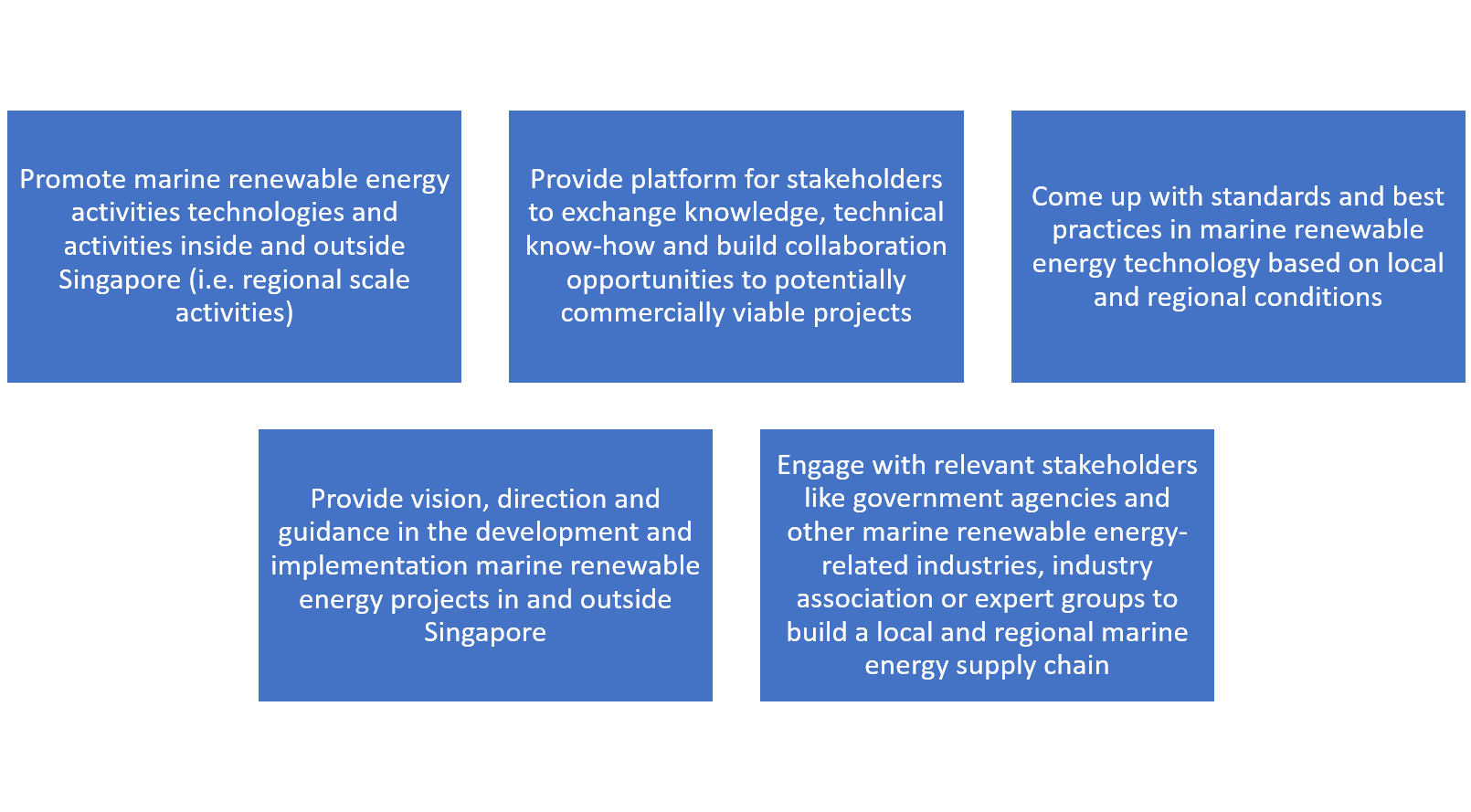
Committee Members responsibilities:
- Review all relevant material before committee meetings
- Attend committee meetings and contribute objective opinions on issues raised
- Support the efforts of the committee by carrying out actionable items after the meeting (if any)
 |
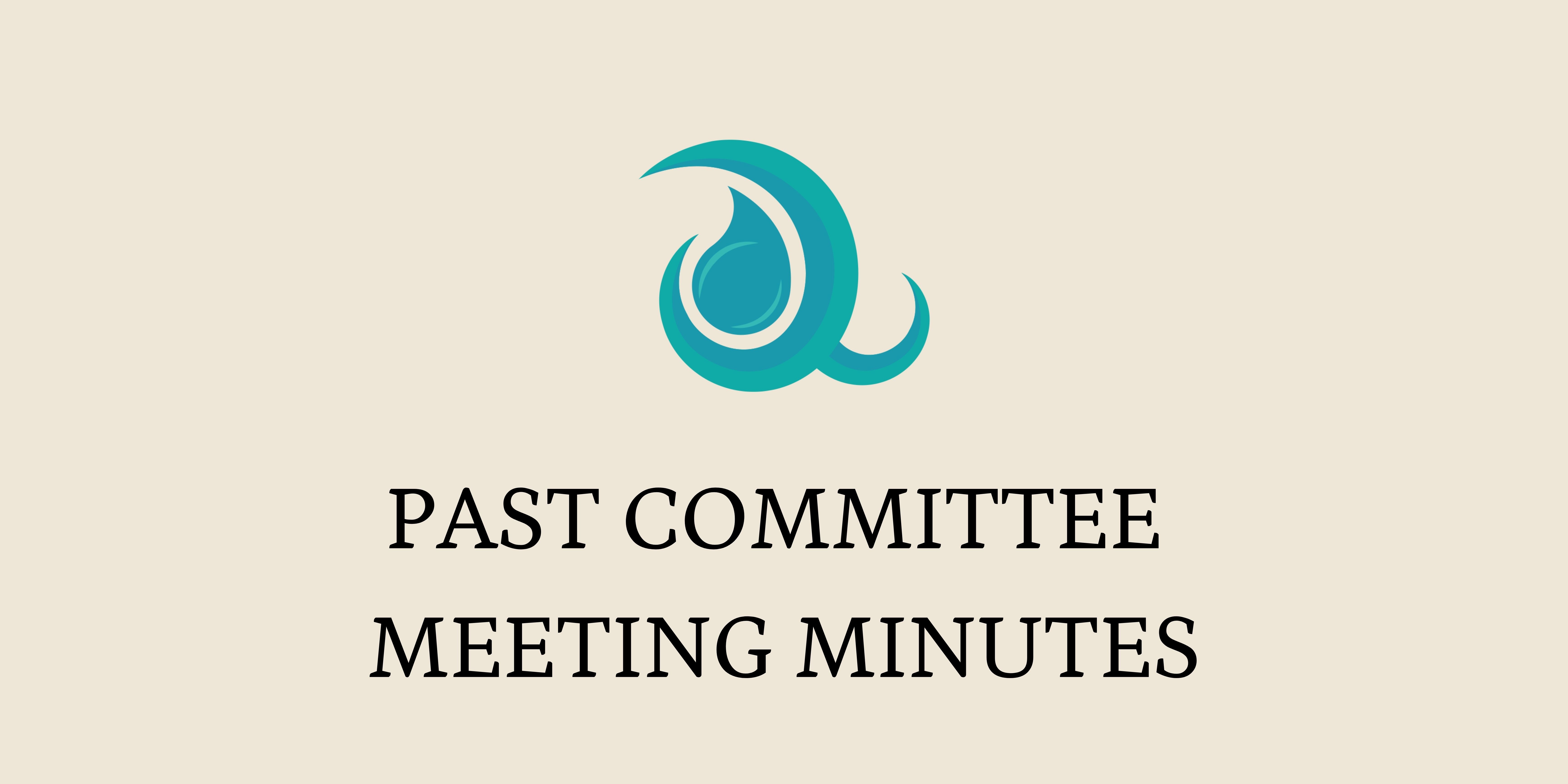 |
- Details
- Category: Uncategorised
- Hits: 8606
About-Us/Our-Committees/Sustainable-Infrastructure-Committee

The Sustainable Infrastructure Committee was established in 2018.The objective was to bring collective thoughts and ideas to add value to the articulation and execution of policies and plans to help towards a more sustainable and smarter Singapore.
An increasing number of sustainable technologies that aim to reduce negative impacts on the earth’s resources are being developed. Sustainable Energy Infrastructure refers to technologies and systems that reduce energy usage and replace fossil fuel powered electricity to renewable sources. This also includes e-mobility solutions, battery storage system as well as demand response technology.
In Singapore, the Energy Market Authority (EMA) is conducting an EV Test-Bed which looks at the feasibility of EVs on Singapore roads by considering consumer behaviour, and performance of vehicles as well as charging technologies. Demand Response technology is also growing in Singapore, and many potential opportunities are being explored for an integrated network that combines smart infrastructure and other forms of renewable energy.
The Sustainable Infrastructure committee is chaired by Dr Sanjay Kuttan.
Committee Objectives:
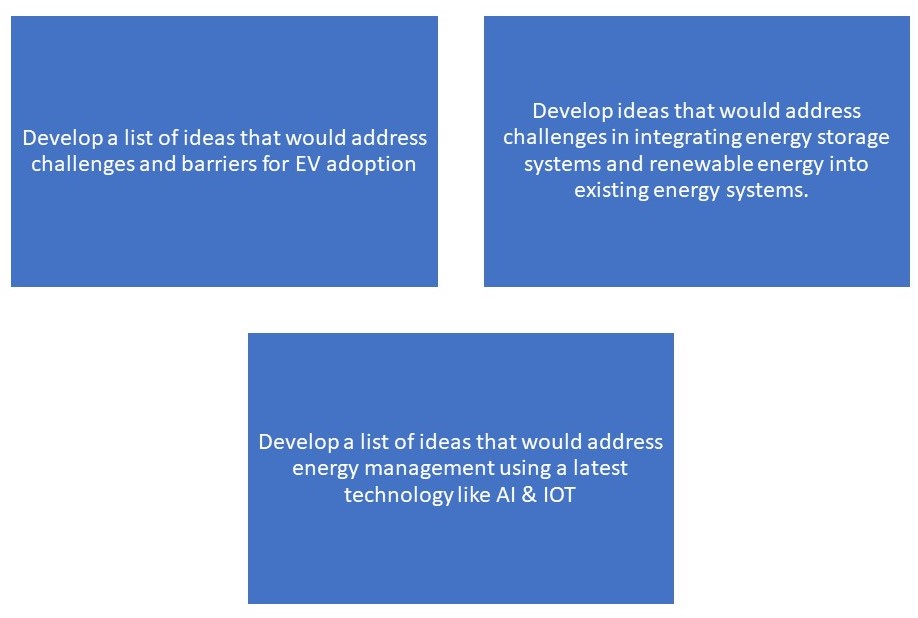
Committee Members responsibilities:
- Review all relevant material before committee meetings
- Attend committee meetings and contribute objective opinions on issues raised
- Support the efforts of the committee by carrying out actionable items after the meeting (if any)
 |
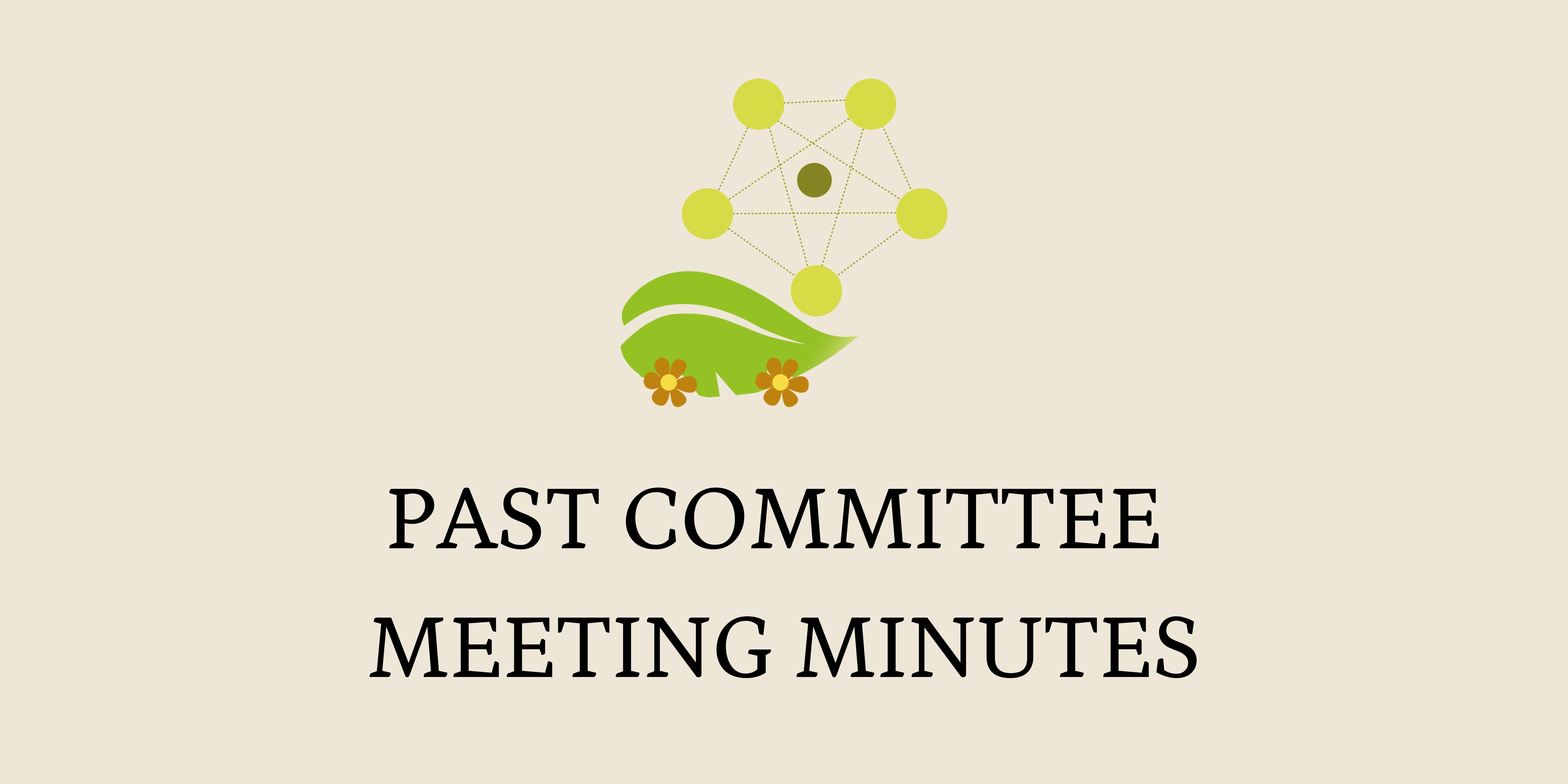 |
